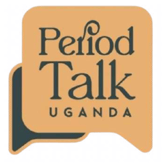Debunking Menstrual Health Myths: Understanding and Promoting Proper Care
Menstrual health is surrounded by Myths that often discourage women and girls from seeking proper care, particularly regarding medication for pain relief. These misconceptions, rooted in cultural beliefs and stigma lead to unnecessary suffering and limited access to treatment. This article explores these myths globally and in Uganda, highlighting their impact and offering strategies to promote accurate menstrual health education
4/12/20252 min read


Understanding Menstrual Health Myths
Menstrual health is an essential aspect of women's health that is often surrounded by numerous myths and misconceptions. These false beliefs are not only prevalent in Uganda but can be found globally, significantly affecting how women and girls approach their menstrual health. Many cultural beliefs stigmatize menstruation and lead to unnecessary suffering. As a result, these misconceptions hinder access to essential treatments, particularly medications for pain relief.
Global Perspective on Menstrual Health Misconceptions
Across the globe, women and girls face a variety of menstrual health myths. In many cultures, menstruation is perceived as unclean, and during their periods, women are often discouraged from participating in daily activities. This oversight can lead to detrimental effects on physical and mental health. Many women believe that using medications for menstrual pain relief is harmful, contributing to a reluctance to seek proper care. This perspective is dangerous, as it can perpetuate severe pain and discomfort, ultimately affecting a woman’s quality of life.
Menstrual Health Education in Uganda
In Uganda, specific myths surrounding menstruation create barriers to effective treatment and education about menstrual health. Cultural stigma surrounds the use of pain relief medication, leading many women to endure pain instead of seeking adequate relief. Furthermore, the lack of comprehensive menstrual health education often leaves women uninformed about their options regarding menstrual pain management and reproductive health.
To combat these myths, we must promote accurate menstrual health education. Educational initiatives should focus on informing women and girls about the importance of seeking medical advice for menstrual issues. Outreach programs in schools and communities can facilitate discussions and dispel common misconceptions. Encouraging open dialogue can empower women and reduce the stigma surrounding menstrual health.
Strategies to counteract these myths include training healthcare providers to deliver sensitive and informed care regarding menstrual health. Resources must be allocated to ensure that women have access to necessary medications and information without fear of judgment or stigmatization. Public awareness campaigns can also play a pivotal role in changing societal perceptions and fostering an environment where women feel comfortable discussing their experiences.
In conclusion, breaking the cycle of myths surrounding menstrual health is critical. By promoting education and addressing cultural stigmas, we can encourage women and girls to seek proper menstrual health care, ensuring they have the support necessary to manage their menstrual health effectively and without unnecessary pain. Every effort taken to educate and empower women is a step towards a more inclusive and understanding society.
